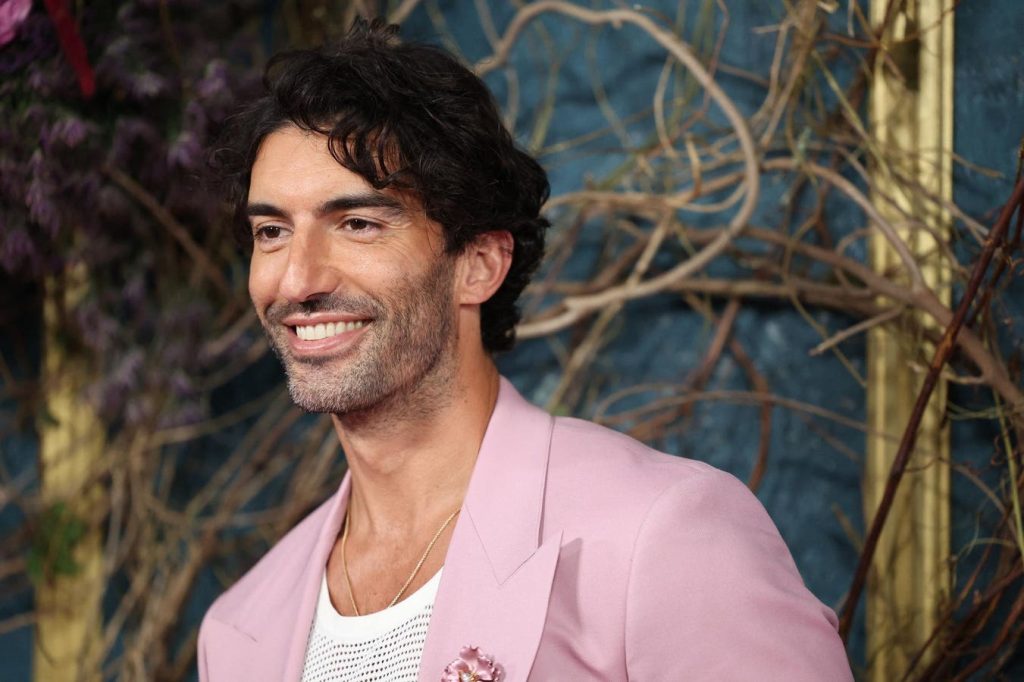Headline: Justin Baldoni vs. Blake Lively: A War of Words and Lawsuits Erupts Over "It Ends With Us"
The idyllic facade of Hollywood filmmaking has crumbled into a bitter battleground as director and star Justin Baldoni and co-star Blake Lively engage in a public feud over the production of their film, "It Ends With Us." Baldoni has vehemently denied Lively’s accusations of fostering a hostile work environment and orchestrating a smear campaign, instead alleging the actress undermined his directorial authority, manipulated the final cut of the film, and attempted to exclude him from its premiere. This escalating conflict, playing out through lawsuits and public statements, paints a picture of clashing egos, conflicting narratives, and a struggle for control both on and off the set.
Baldoni’s counter-narrative, outlined in a lawsuit filed against The New York Times, directly contradicts Lively’s claims. The actor-director alleges Lively consistently interfered with his vision for the film, bombarded him with demands for changes, and aggressively berated him over a misunderstanding related to body shaming. Furthermore, he accuses Lively of overstepping her boundaries during post-production, ultimately persuading the studio to release her preferred edit despite his cut testing better with audiences. Baldoni also claims Lively attempted to ban him from the film’s premiere and succeeded in barring him from the after-party, an act he considers deeply humiliating.
The feud extends beyond the set and into the realm of public relations. Baldoni disputes the characterization of himself as the architect of a smear campaign against Lively. He contends the negative press surrounding the actress stemmed from public dissatisfaction with her promotional approach, which was perceived as trivializing the film’s sensitive themes of domestic abuse. Furthermore, he accuses Lively’s publicist of planting negative stories about him, including allegations of sexual misconduct. Baldoni’s attorney, Bryan Freedman, has vowed to release all relevant communication and evidence to the public, inviting scrutiny to determine the veracity of both sides’ claims.
The accusations become even more intricate with the involvement of Ryan Reynolds, Lively’s husband. Baldoni claims Reynolds aggressively confronted him over alleged fat-shaming remarks and joined Lively in pressuring their talent agency to drop Baldoni. The lawsuit also alleges Reynolds made unauthorized script changes without Baldoni’s knowledge. These claims introduce a complex dynamic of spousal support and collaborative filmmaking, further muddying the waters of this already contentious dispute.
Lively, through her legal team, maintains her stance that she was retaliated against for reporting workplace misconduct. Her attorneys dismiss Baldoni’s narrative as a classic case of "blaming the victim" and attempting to reverse the roles of offender and victim. They insist their lawsuit is “backed by concrete facts,” while accusing Baldoni of employing diversionary tactics to deflect from the allegations against him. This stark contrast in narratives sets the stage for a protracted legal battle, leaving the public to decipher the truth amidst competing claims.
The core of the dispute revolves around the power dynamics on the set of "It Ends With Us." Baldoni portrays himself as a director undermined by a powerful actress and her influential husband. He alleges Lively exploited her status to control the creative process, ultimately overriding his directorial authority. Lively, on the other hand, paints herself as a victim of workplace harassment, silenced and retaliated against for speaking out. The conflicting accounts highlight the complexities of power and control in the entertainment industry, leaving many questions unanswered and the public eager for the unfolding legal proceedings to shed light on the truth. The case promises to be a high-profile examination of the blurred lines between artistic collaboration and abusive behavior within the world of filmmaking.


